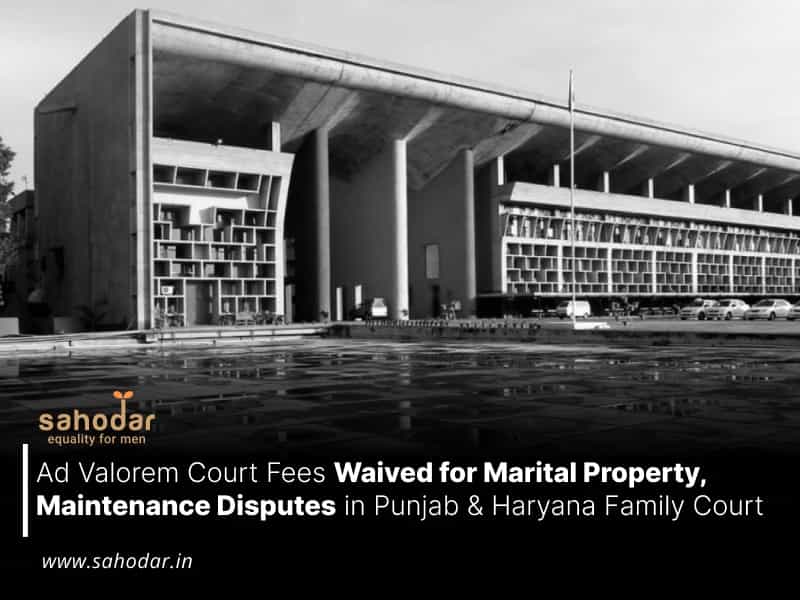The Punjab and Haryana High Court has ruled that petitioners are exempt from paying ad valorem court fees when bringing disputes regarding marital property and maintenance payment to the Family Court.
Justice Gurbir Singh noted that Family Court proceedings related to maintenance are of a summary nature, making ad valorem court fees inapplicable to these proceedings.
“The dispute regarding properties of the parties to the marriage are to be dealt by the Family Court and not by the regular civil court. Jurisdiction of regular civil court is barred in such matters.Moreover, creating charge over the property is to ensure recovery of maintenance which may be granted in a suit and if a person transfers the property in order to defeat the right of wife and children for maintenance, such suit can be tried by the Family Court and not by separate suit. The petitioners-plaintiffs are not liable to pay ad valorem court fee.”
These comments were provided during the review of a petition under Article 227 of the Constitution, with the aim of overturning two directives issued by the Additional Principal Judge of the Ludhiana Family Court.
The initial directive obligated the petitioners to remit an ad valorem court fee for their maintenance petition filed under Section 7 of the Family Courts Act, 1984. The second directive dismissed the petitioners’ request to challenge the order dated 04.11.2019.
In their lawsuit, the petitioners requested maintenance under Sections 18 and 20 of the Hindu Adoption and Maintenance Act, 1956. They also sought declarations concerning charges on specific properties, the nullification of certain transfer deeds, and a permanent injunction.
The Family Court instructed the petitioners to pay court fees based on the valuation of their maintenance claims.
“the suit is not valued for the purpose of court fee and jurisdiction as per relief of recovery of maintenance at the rate of Rs.1,50,000/- per month and litigation expenses of Rs.1,00,000/- for the plaintiffs sought by the plaintiffs against defendants…”
The petitioners contended that the lawsuit initiated by the wife and children under Sections 18 and 20 of the Hindu Adoption and Maintenance Act does not fit the definition of a “suit,” and therefore, Section 7 of the Court Fees Act is not applicable to their case. Consequently, they argued that they should not be obligated to pay an ad valorem court fee.
In response, the respondents maintained that the maintenance matter had already been addressed through a separate application under Sections 24 and 26 of the Hindu Marriage Act. The petitioners had already received a significant sum as maintenance, rendering the current maintenance lawsuit redundant.
In light of these arguments, the Court referred to the precedent set by the High Court in the case of Balwinder Singh v. Sinderpal Kaur & Anr, 2019(4) R.C.R. (Civil) 720, where it was determined that,
“the proceedings initiated before the Family Court for the purpose of maintenance are petition in nature and not suit and ad valorem court fee is not liable to be paid.”
Emphasizing that disputes related to the marital properties are within the purview of the Family Court and not the standard civil court, the Court clarified that the jurisdiction of the regular civil court is not applicable to such matters.
Justice Singh also elucidated that the imposition of a charge on the property serves the purpose of ensuring the recovery of maintenance that might be granted in a legal proceeding. If an individual attempts to transfer the property with the intention of obstructing the rightful claim of the wife and children to maintenance, such a case should be adjudicated by the Family Court rather than through a separate lawsuit.
Consequently, the Court granted the petition and invalidated the two orders issued by the Family Court. It decreed that the petitioners were exempt from paying ad valorem court fees for their case filed within the Family Court.

